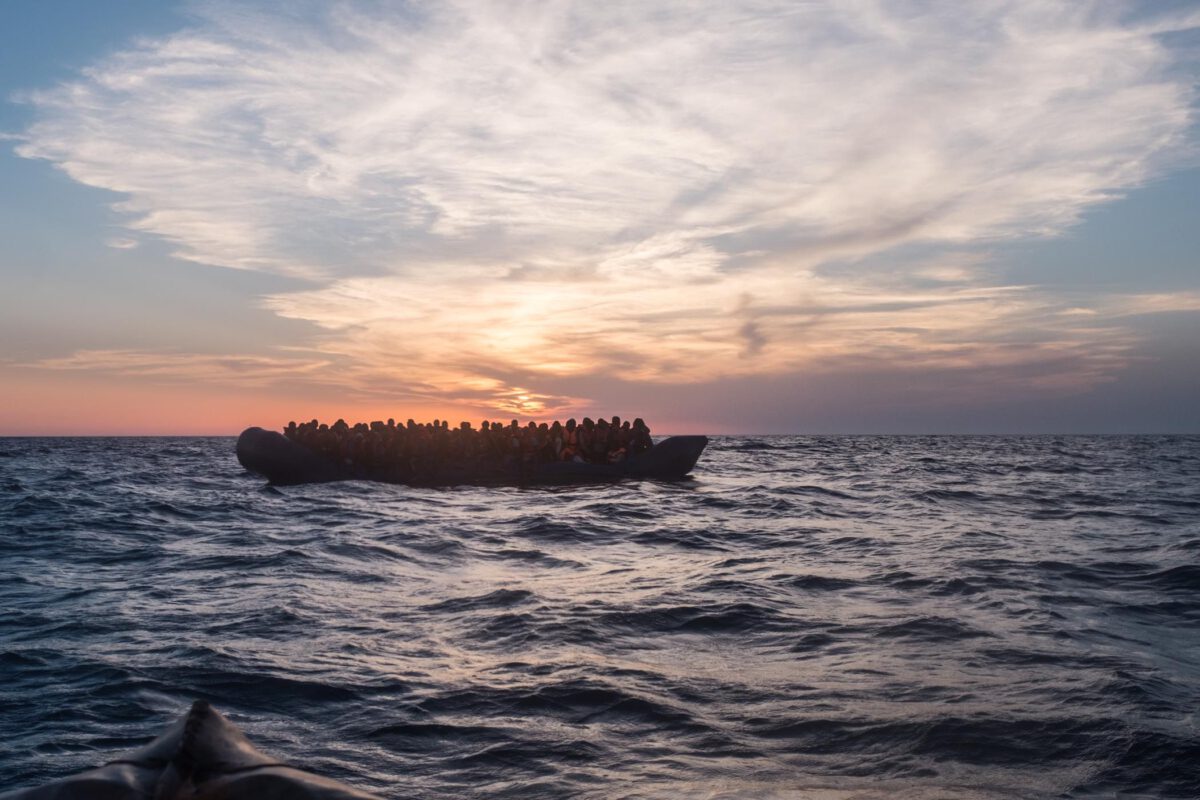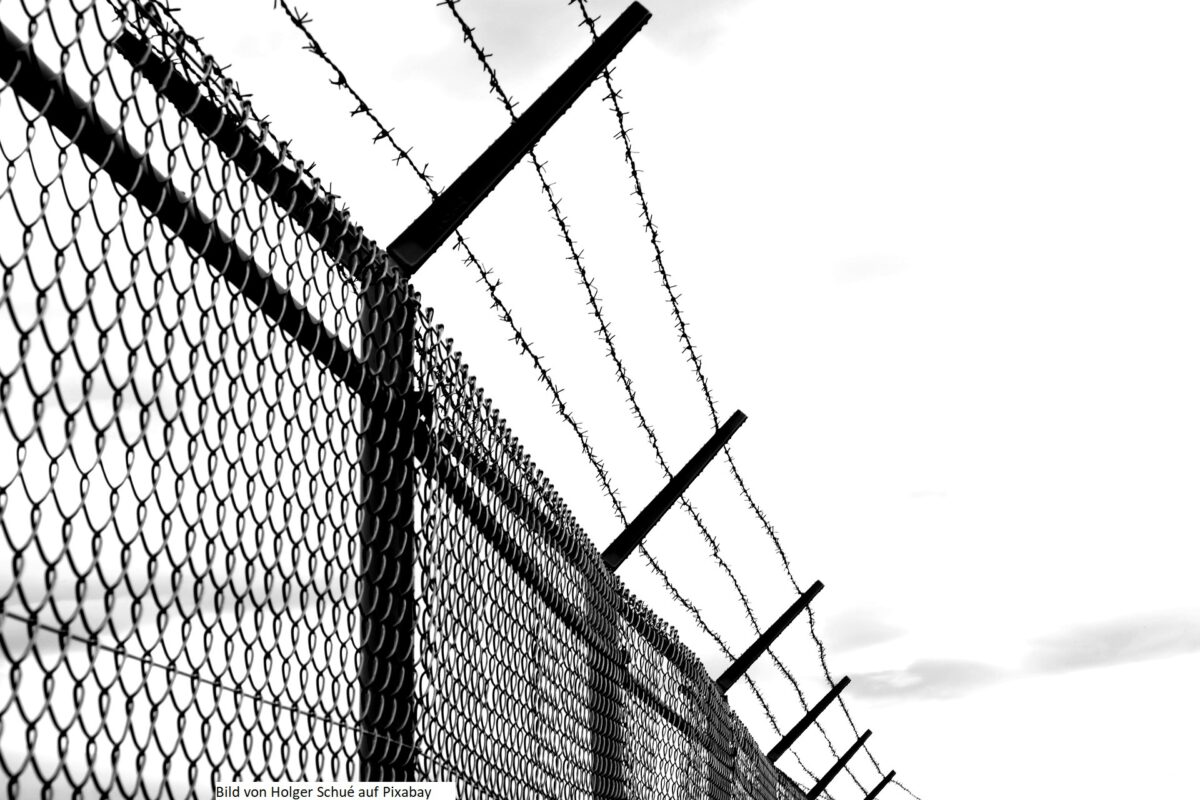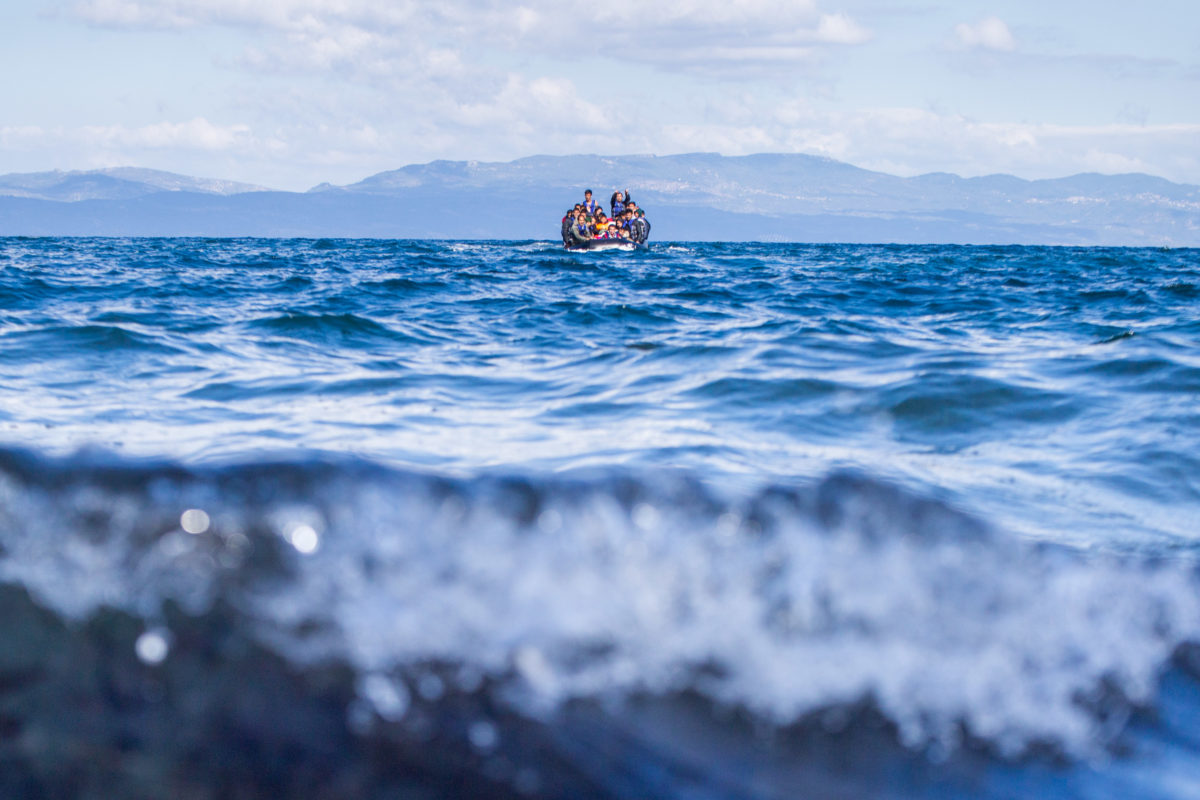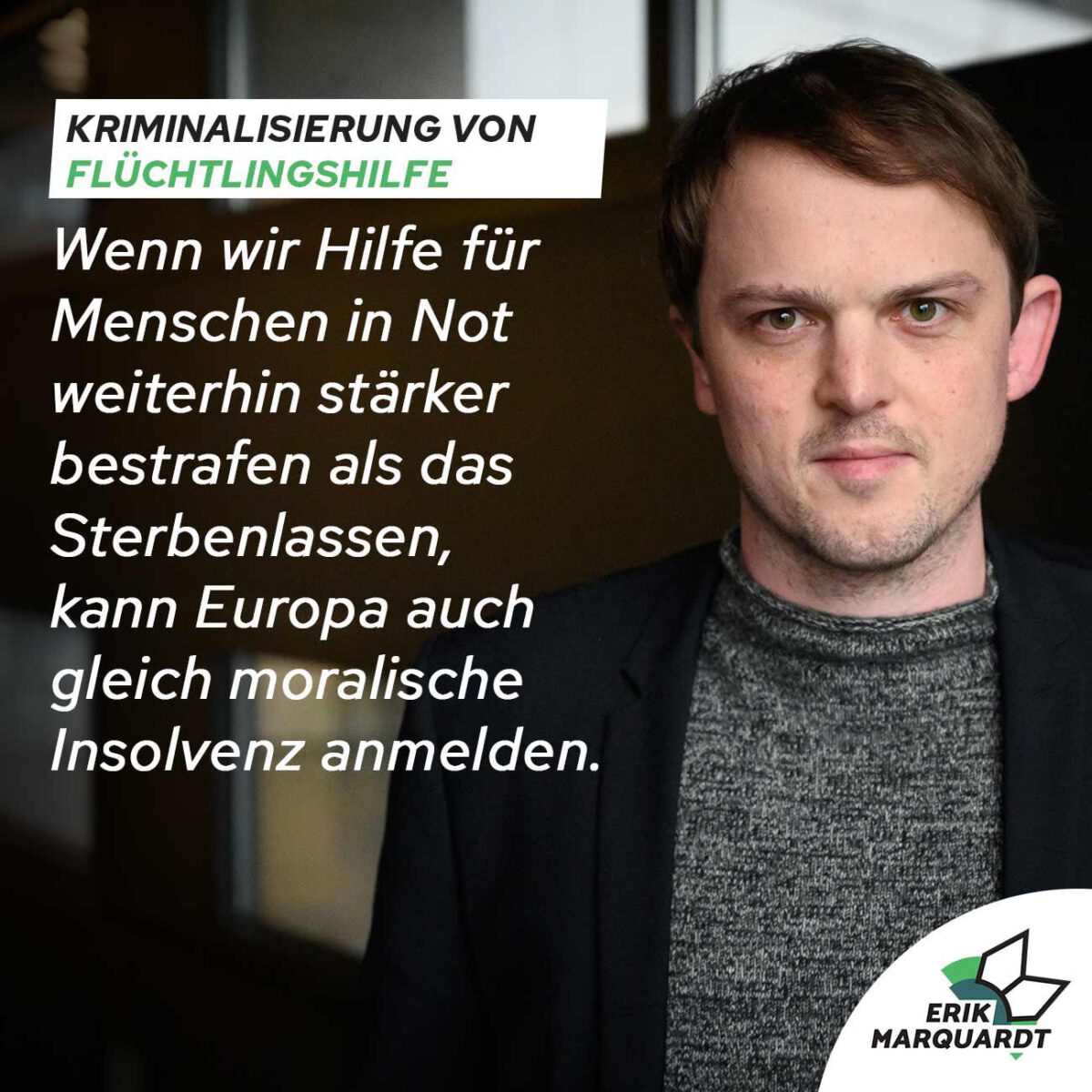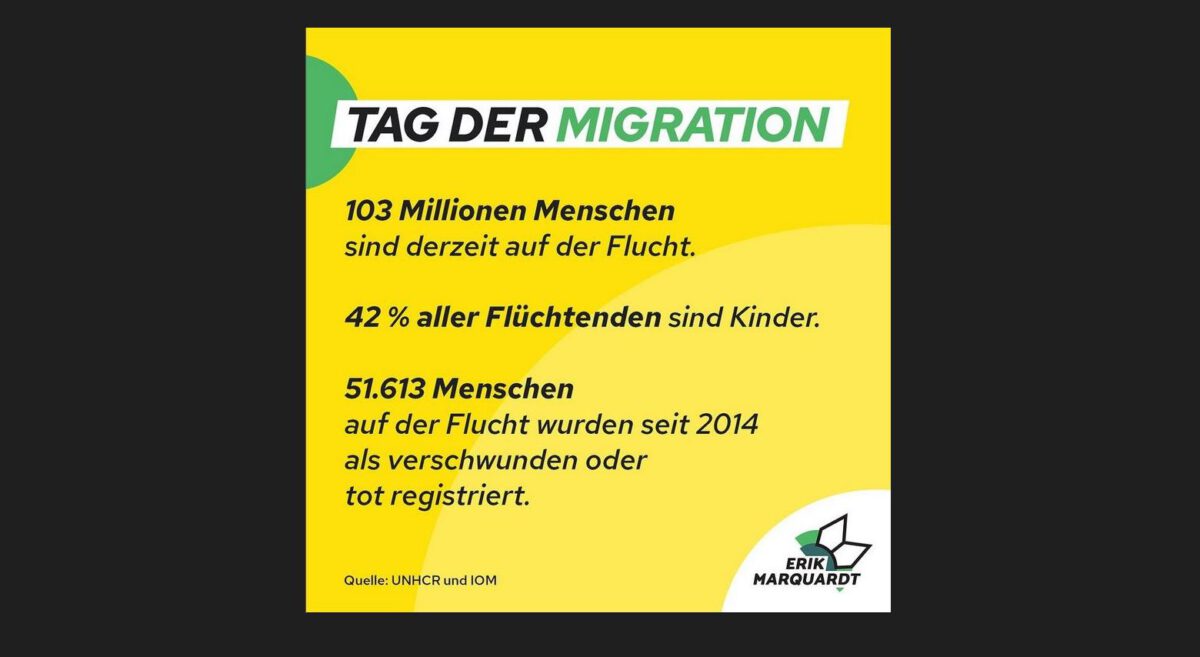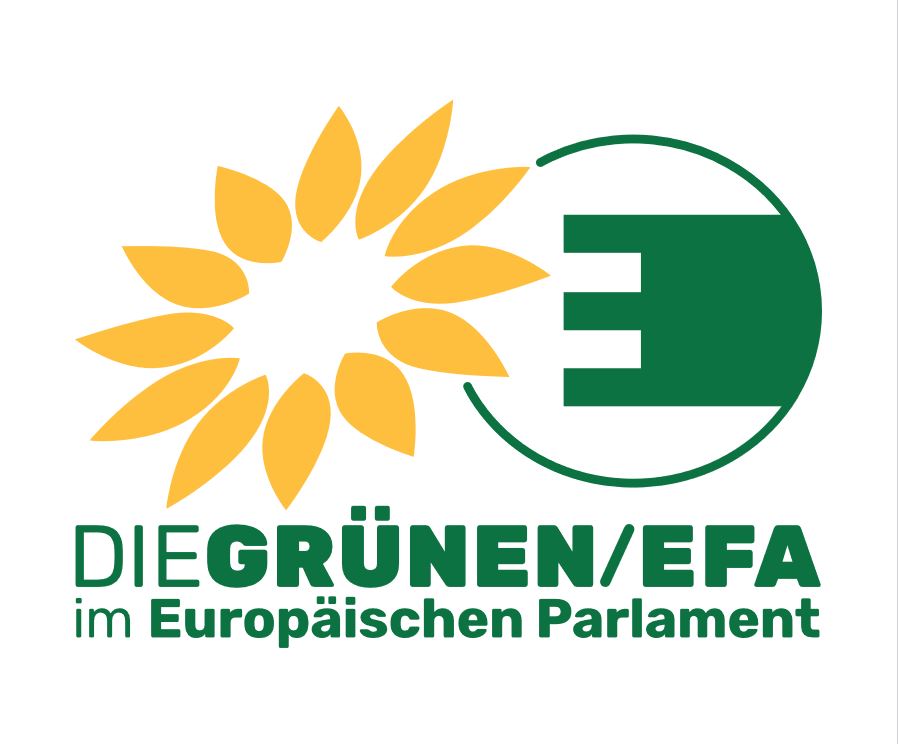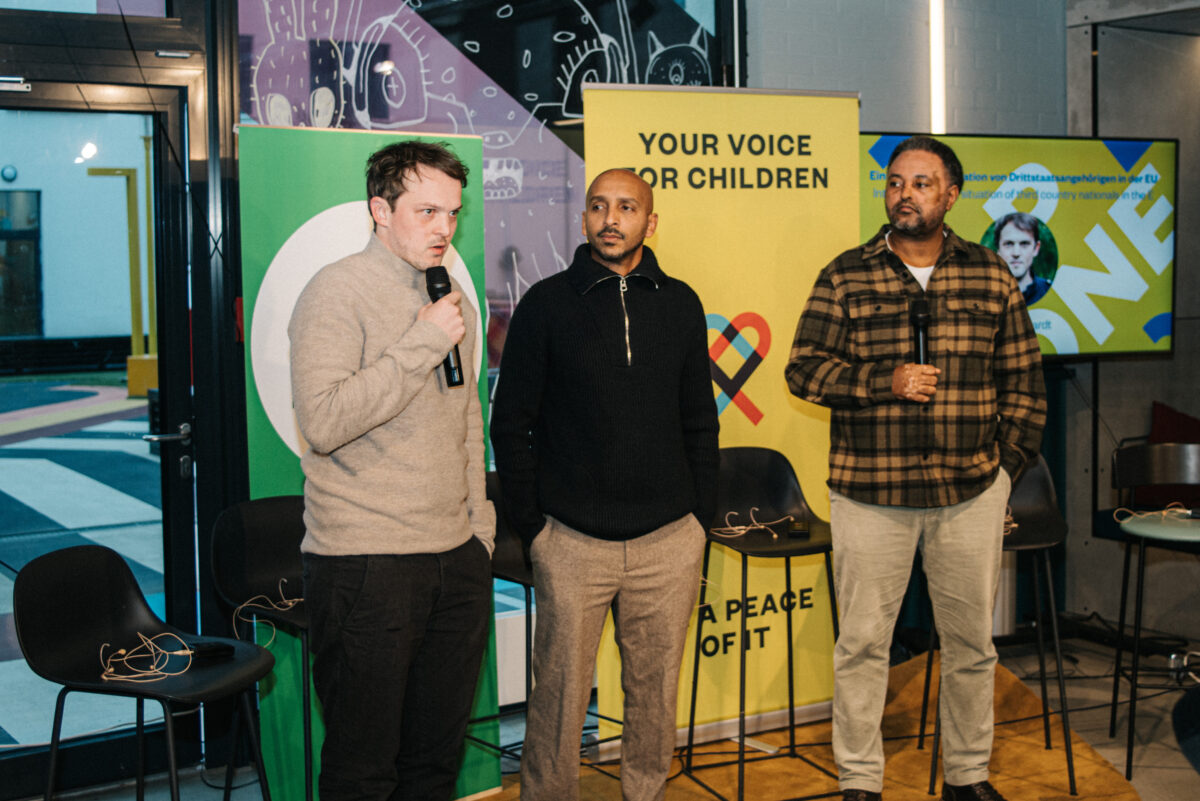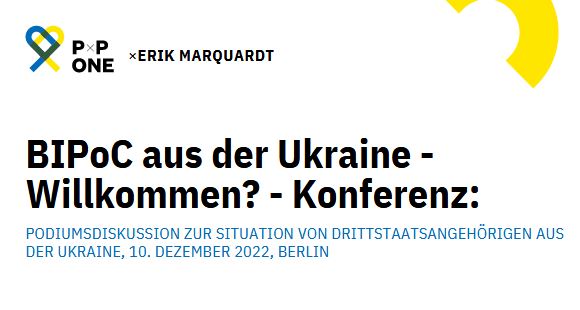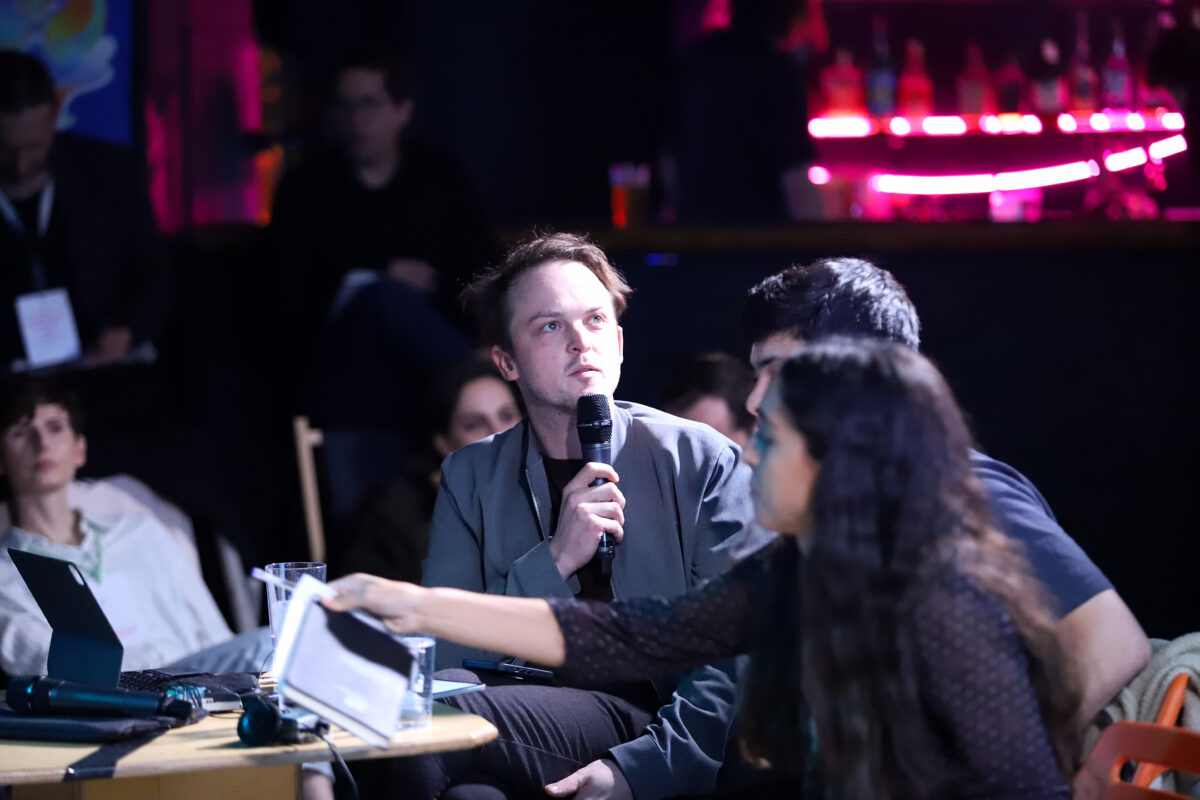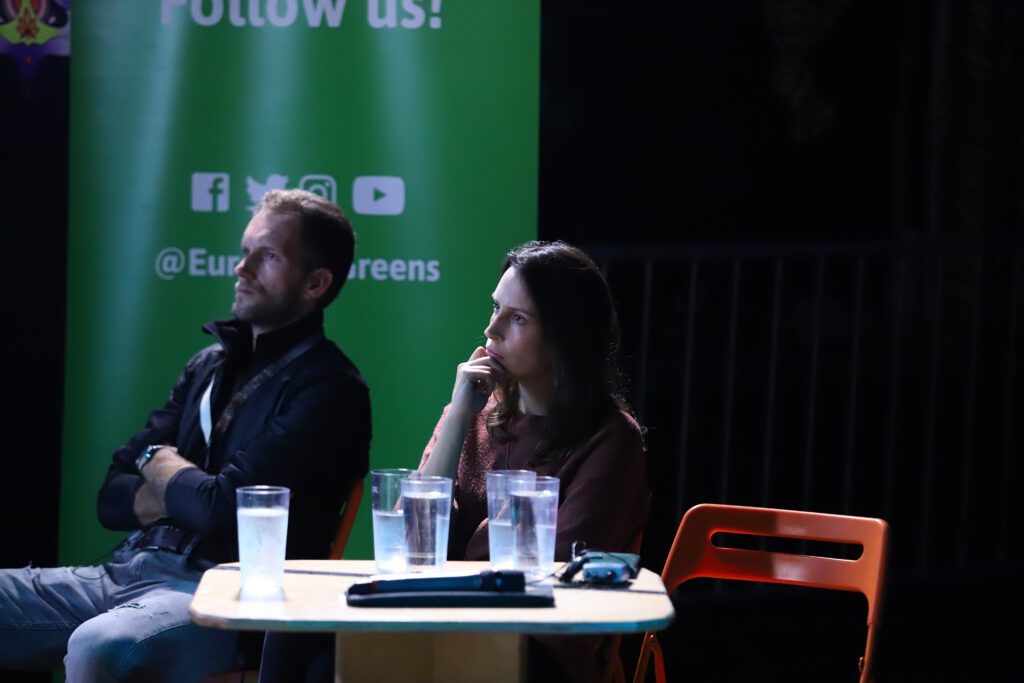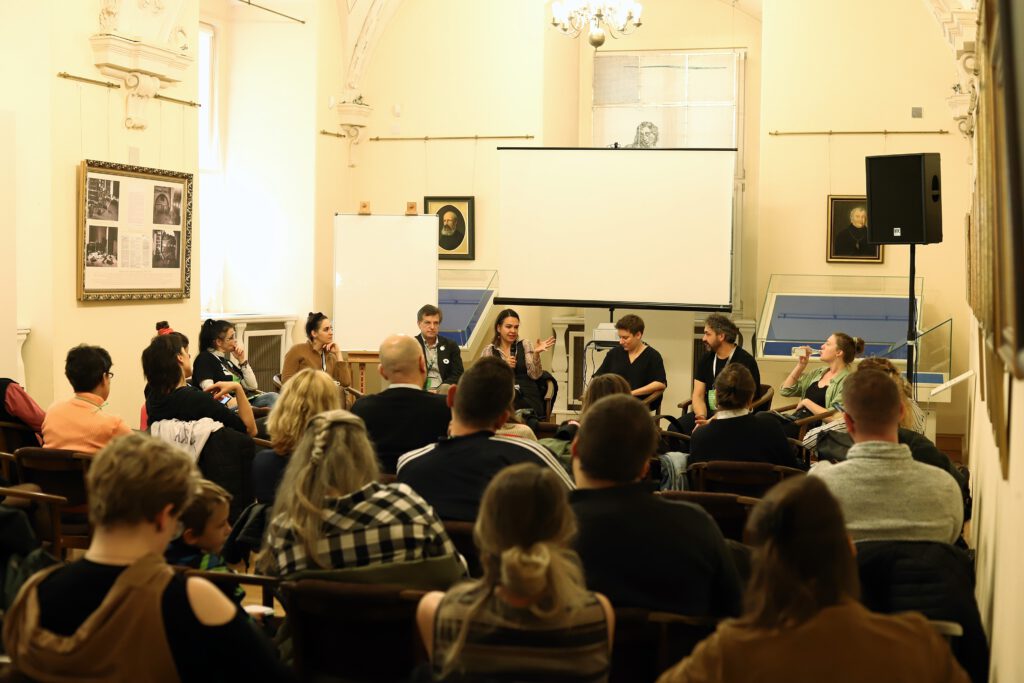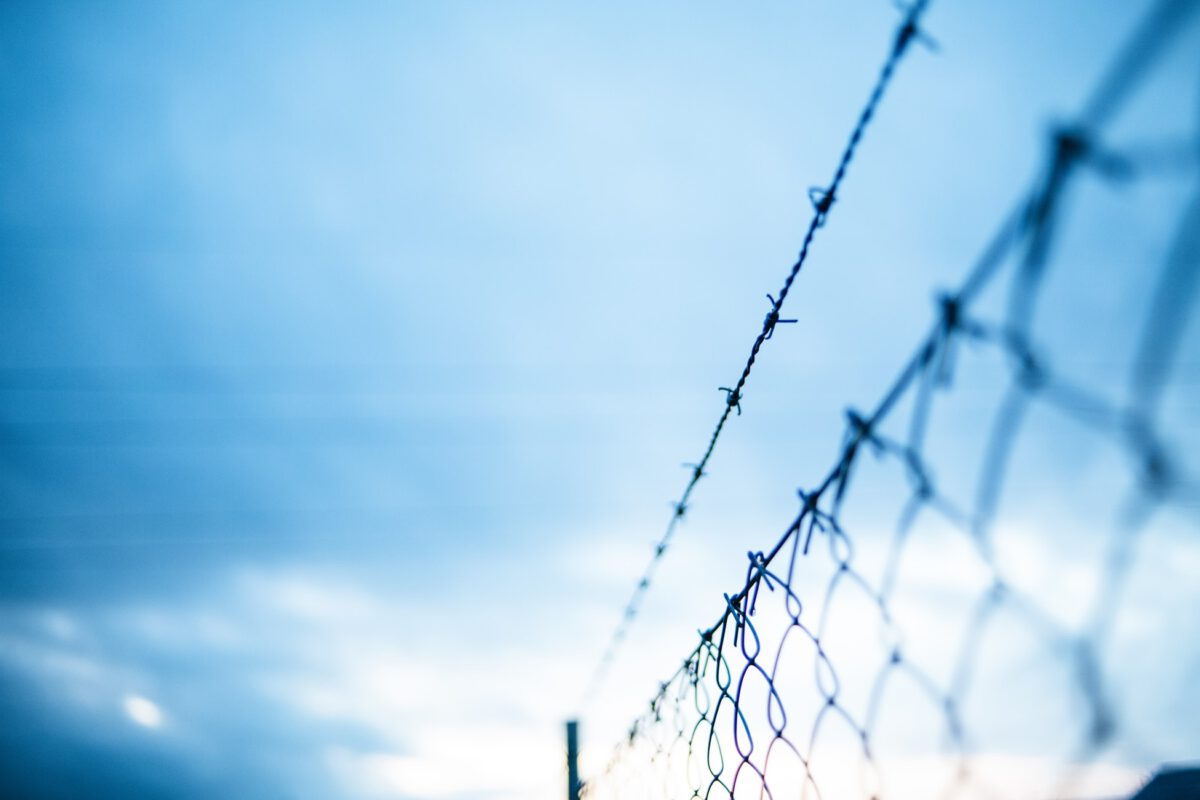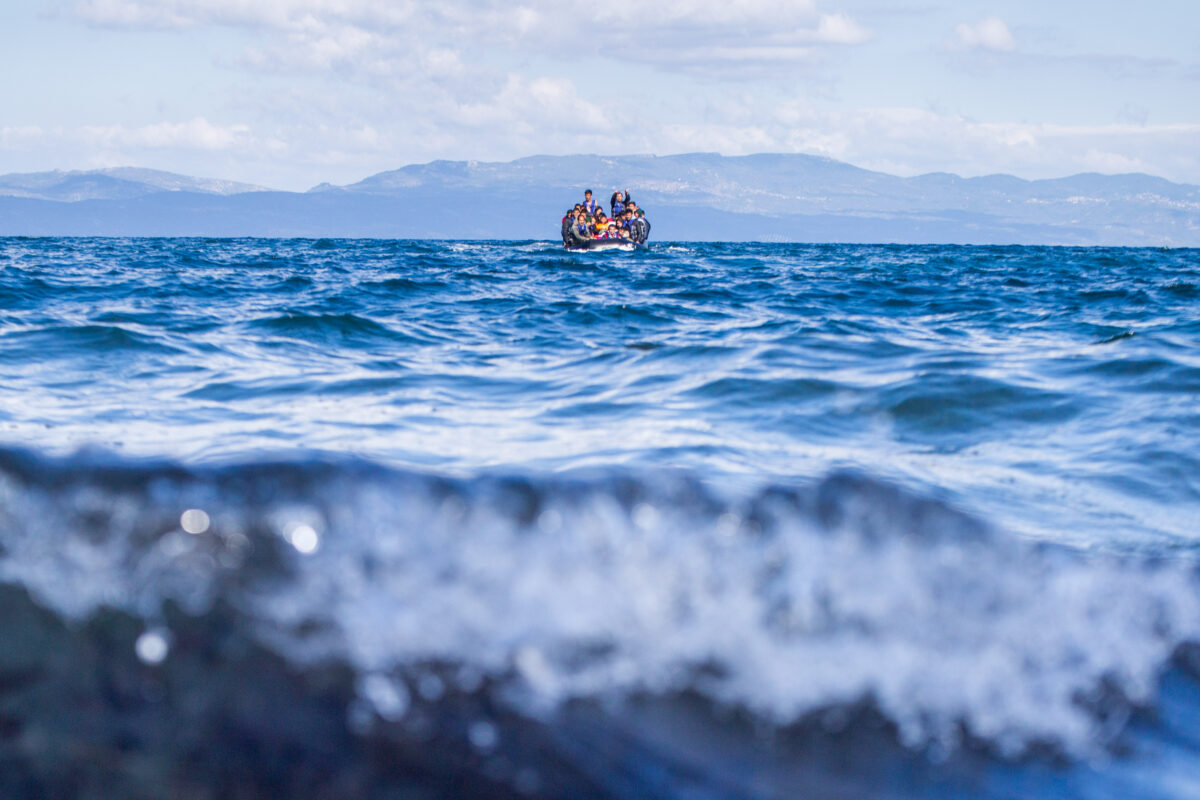On December 10, 2022, together with PxP Embassy e. V. a Conference on the situation of third-country nationals in Germany and the federal states. You can find the livestream here. Together with representatives of civil society, politics and affected BIPoC people from Ukraine, we discussed the current situation, possible solutions and future perspectives.
The EU has taken in 4.7 million refugees
Since Russia's invasion of Ukraine, more than one million people in Germany have now been able to reach safety. Through the first-time activation of the "Mass Inflow Directive" of the European Council, the EU has been able to create a common solution for people fleeing war, so that they have a safe residence perspective and care quickly and without bureaucracy. This Temporary Protection Directive has existed since 2001, but has never been activated before. The directive allows refugees unbureaucratic access to social benefits, health care, labor market access and free choice of residence. Thanks to its application, the Dublin Regulation does not apply, which means that refugees do not have to apply for asylum in the country where they first enter, as is usually the case, but can move freely within the EU. This is a great success for the EU and shows that when there is political will, uncomplicated solutions are quickly found. The EU has achieved an enormous feat of strength and over 4.7 million People received from Ukraine.
Third country nationals are excluded
However, one group of people has been excluded: the so-called third-country nationals. For these people without Ukrainian passports but residing in Ukraine, other regulations have been created – many are to be deported. They are excluded from temporary protection for war displaced persons, and this despite the fact that they had to flee from the same war. According to the IOM, among the nearly five million refugees are approx. 500.000 Third-country nationals who have fled Ukraine. They have often had very different experiences than Ukrainian refugees and have already had traumatic racist and discriminatory experiences at the borders. Many of them were pulled out of trains as the only PoC and were denied border crossings. Denies. This is because the Mass Influx Directive primarily provides for the protection of Ukrainian nationals, but there is an explicit recommendation by the Council to extend the circle of beneficiaries of protection to third-country nationals and stateless persons as well. However, since the EU cannot grant residence status to refugees, the national authorities must transpose the directive into national law; in Germany, this is the Federal Ministry of the Interior.
Implementation of the mass inflow directive in Germany
With the application of para. 24 Right of residence Germany has implemented the Mass Influx Directive almost 1:1, except for the recommendation to extend the group of beneficiaries of protection to third-country nationals and stateless persons. Third-country nationals can also apply for temporary protection, but unlike Ukrainians, they are examined to determine whether they can safely return to their country of origin, regardless of whether their center of life was in Ukraine or not. If it is decided that a return to the country of origin is possible, the affected persons receive a negative residence decision and are thus obliged to leave the country. They are threatened with deportation and illegalization, even though they fled the same war as everyone else.
The Netherlands does it differently
Most EU countries have implemented the mass influx directive in a similar way to Germany. However, the fact that it can also be done differently can be seen in the example of the NetherlandsHere, even those who had only a temporary residence permit in Ukraine, such as student visas, fall under the protection of the mass influx directive. Here, double standards are applied and a racist division of two classes of refugees is created. There should be equal rights for all people fleeing from the same war in Ukraine.
In the absence of a regulation from the federal government, Berlin creates an interim solution
The Berlin state government, as well as Hamburg and Bremen, has attempted a Temporary solution for third-country nationals. By extending the right of residence from 90 days to an additional six months, third-country nationals should be able to meet the qualifications for other visas, e.g.: Student visas. This is already a step in the right direction, but the period is too short to be a real chance for many people to get another residence title. For a student visa, for example, a language level of C1 is necessary, as well as a blocking amount of about 10,000€, hard to manage in six months. Furthermore, our discussions have shown that there is an enormous difference between political will and reality at the authorities.
Authority madness
Those affected describe a back-and-forth from authority to authority, employees who are not up to date with the latest regulations, and deportation notices that are served even though a six-month extension has already been issued. In addition, original documents are often required, but these have been lost during the flight or cannot be obtained because the Ukrainian authorities do not work as usual; copies and scans are often not accepted. If §24 were applied to all refugees from Ukraine, an enormous amount of resources would be freed up on the part of German authorities and NGOs. These could support the refugees in their arrival and integration instead of spending their energy navigating the bureaucratic jungle. It would also mean a great reduction in psychological stress for people who have just fled a war, as well as give them a chance to arrive in Germany. Jian Omar, a member of the Berlin House of Representatives, made it clear to us at the panel, however, that it is already pushing hard for a follow-up solution in the state parliament right now. Misbah Khan and Hakan Demir, members of the Bundestag, have pledged to keep up the pressure at the federal level to find a solution to the situation.
Double standard – Why?
According to UNHCR 4,776,606 people registered for temporary protection in EU countries. Of these, Germany has taken in over one million refugees. According to the BMI, approx. 29.000 Third-country nationals. This means that no 3% of the people from Ukraine in Germany are third-country nationals. So we are talking about a very small number of people for whom life is made very very difficult. Moreover, most of them have been students in Ukraine. Many of them in the medical field – a field that desperately needs skilled workers. So one wonders why there is a need to differentiate here. An overview of the program, the guests and the contents can be found at here. The conference was broadcast live and recorded.
